
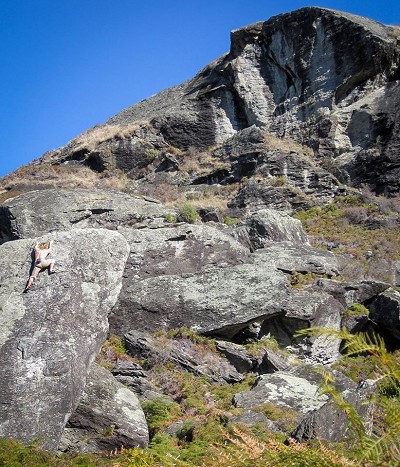
I've had many conversations with people about soloing over the years, a topic of conversation that is becoming more frequent. With a few mainstream media articles and corporate videos featuring high profile climbers soloing doing the rounds at the minute, I've been thinking more and more about it. What are its merits and how is it presented to and perceived by non-climbers and beginners? I got sent a photo recently, taken a while back of me soloing in Wanaka, which provided the catalyst for this article.
Working in the outdoors, running climbing and mountaineering courses alongside instructing and coaching many different people, I often get drawn into in-depth discussions behind the psyche and motivations of climbers. We (me especially) are simple souls and perhaps don't think about the answers to the questions people sometimes ask. I've developed stock answers to many of them, the classics being: 'Have you slept on one of those ledge things?' (Yes I have) and 'Have you climbed Everest?' (No, I have not). But people want more than that, you're drawn into a talk on the merits of putting yourself in danger on a mountain and whether Everest really is climbing or not. I feel that as an instructor I need to give the measured, safety first response; to be a good role-model. Sometimes it's better to not share our own strong opinions, to avoid controversy and to appear to be giving off the right message to novice climbers.
But one topic I'm being increasingly asked about is soloing. It's hard to avoid the mainstream media attention that the exploits of Alex Honnold receive, and this is precisely the sort of exposure that novices have to compare normal climbing against. What Honnold does is nothing new, it's simply at a different level. People at the forefront of the sport have been soloing hard for years with (and without) exposure in the media. Osman, Potter - all guys I've looked up to and aspired to emulate in some way or another, but perhaps not a list of names you'd wish to join. But soloing simply isn't about cutting edge big walls, or glossy photos. Climbers at every level have by all accounts been at it since our sport began. So when someone asks me if I solo, it's hard to give a totally honest response, as I feel the need to give them sound, safe advice, compared to the media's representation of the activity.
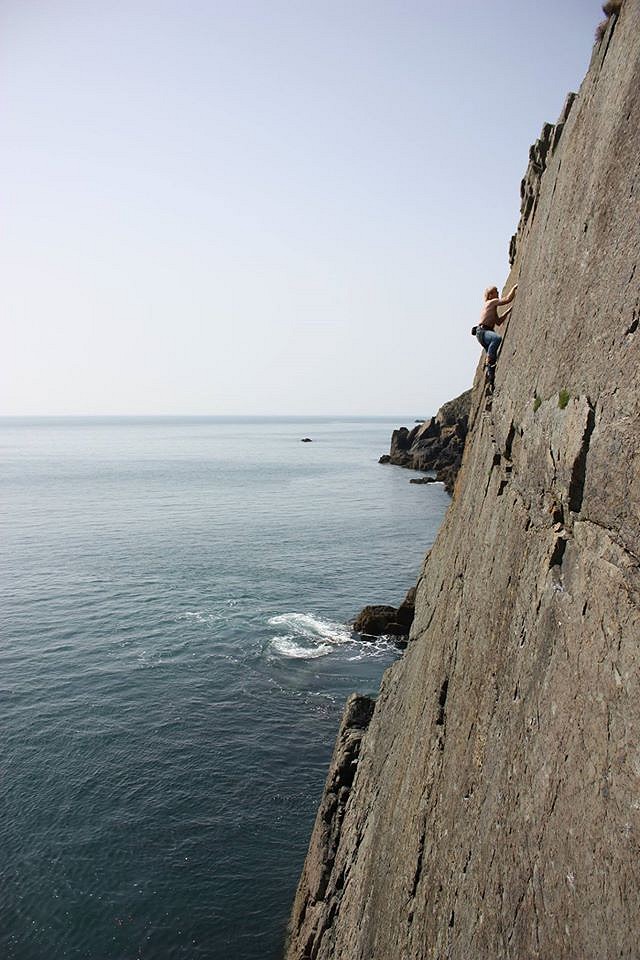
When people are in the formative experiences of their climbing lives, soloing shouldn't even be on their radar. So is it right for the media to portray it through rose tinted spectacles, so often and so blatantly? If I were to be totally honest with novice climbers when they ask me if I solo, they'd be horrified of the stories I'd tell. Snapping a hold 50ft up, falling off and hospitalising myself; pure luck on one occasion, stopping certain death. Other times: where I've gone past the point of no return, having to push the thoughts of wanting to be elsewhere out of my mind, to achieve total concentration and enter the right frame of mind to get out of the situation in hand. Or when a simple slip on easy terrain has put your heart in your mouth, for the fear of what might have been. I guess if you play the numbers game, there's only a finite amount of experiences like this you can have before you go the same way as Osman or Potter - OK, it wasn't only soloing that caused their demise - or any number of cutting edge alpinists I've looked up to whose names are too numerous to mention.
There was an excellent article recently in The Professional Mountaineer (a joint association magazine with the AMI, BMG, BAIML and Mountain Training) on soloing, by Jamie Barclay. But he looks at it from the opposite end: that for novice climbers, scrambling is soloing and he's absolutely right. By acquiring sound mountain and rock judgement developed on easier terrain, eventually you may have sufficient skills to think about soloing rock climbs, but so many people these days don't take the same time-served apprenticeship that many of us did. I can't think how many climbs I did at Diff and V Diff standard before progressing beyond. Nowadays, trying to persuade someone on a learn to lead climb course to stick to routes at this level is a hard task! Sure they may be strong and confident, but they simply don't have the required skill level to either appreciate what danger they may be in, or deal with any problems that arise, which is why I believe it pays to take the belt and braces approach when broaching this subject in conversation and in future, perhaps clients will be experienced enough to make their own decisions.
But what role does the media play in encouraging novices to operate outside their limits? Do people see the exploits of Honnold et al and see a Rock God who is perhaps best not copied, or do they feel the urge to get out and solo some hard climbs? Obviously the approach will vary individually, but I can't help but feel the media are at least in part responsible for the rise in people wanting to solo. They've glamourised something that should possibly not be. For many of us, soloing may be necessary in the bigger mountains to enable fast movement, or perhaps a fun way to spend a day covering lots of ground on easy terrain. But sometimes, just every so often, it turns into a terrifying experience that we only just scrape through and that cannot last forever.
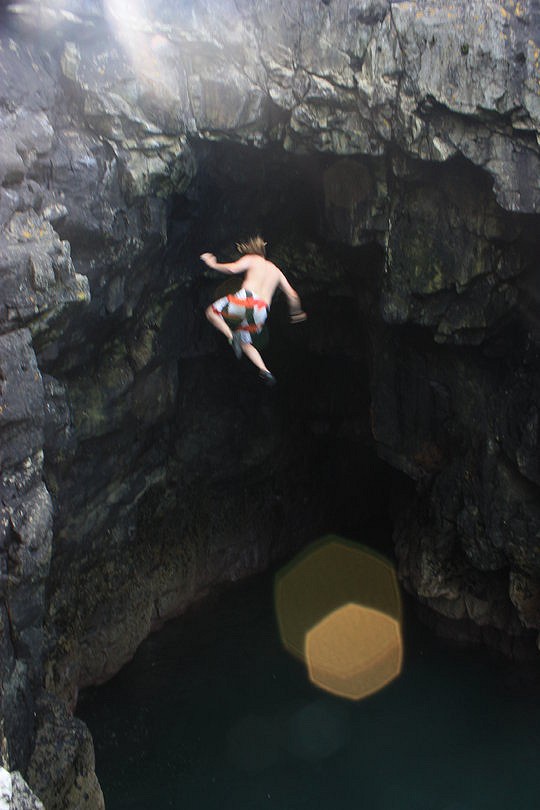
So my advice to someone asking about soloing? Yes, I do it. I like soloing long easy routes, but I have also soloed routes near my limit. Not always with positive experiences. Yes, it's dangerous. If you get stuck, there is no opt out clause - you've got to sort it out yourself. If you fall off you may well pay the ultimate price. You need more than just physical strength. You've got to have total mastery of body and mind, and be able to read the rock and judge individual situations. Every day and situation is different. Listen to your inner feelings. Some days it's just not on, others you're in a state of flow where everything simply seems right. If you feel you want to solo, go scrambling lots, learn the rock and all the skills you'll need, develop an ability to cope with exposure and most importantly understand the mental side of it all. Maybe then you'll feel ready to solo an easy route, perhaps an easy multi-pitch route.
Perhaps deep water soloing is a good bridge on the step up to true soloing? It still has its dangers, though. Hopefully it goes without saying that going climbing with a rope and mates is much more sensible and usually more fun!
But at the end of the day, I should say 'Don't do it, it's dangerous!'
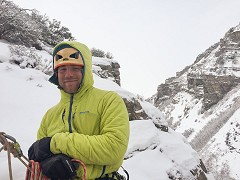
Most of his time is spent teaching people to lead climb, self-rescue skills and training/assessing instructors.

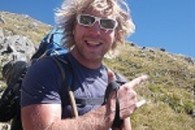


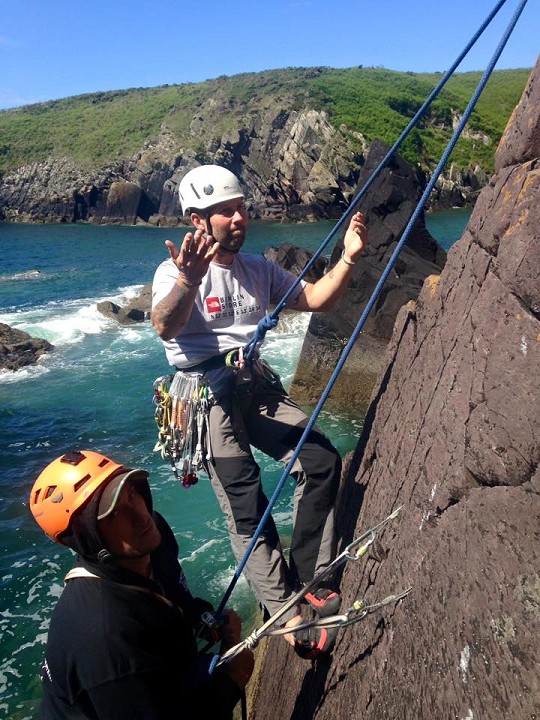









Comments